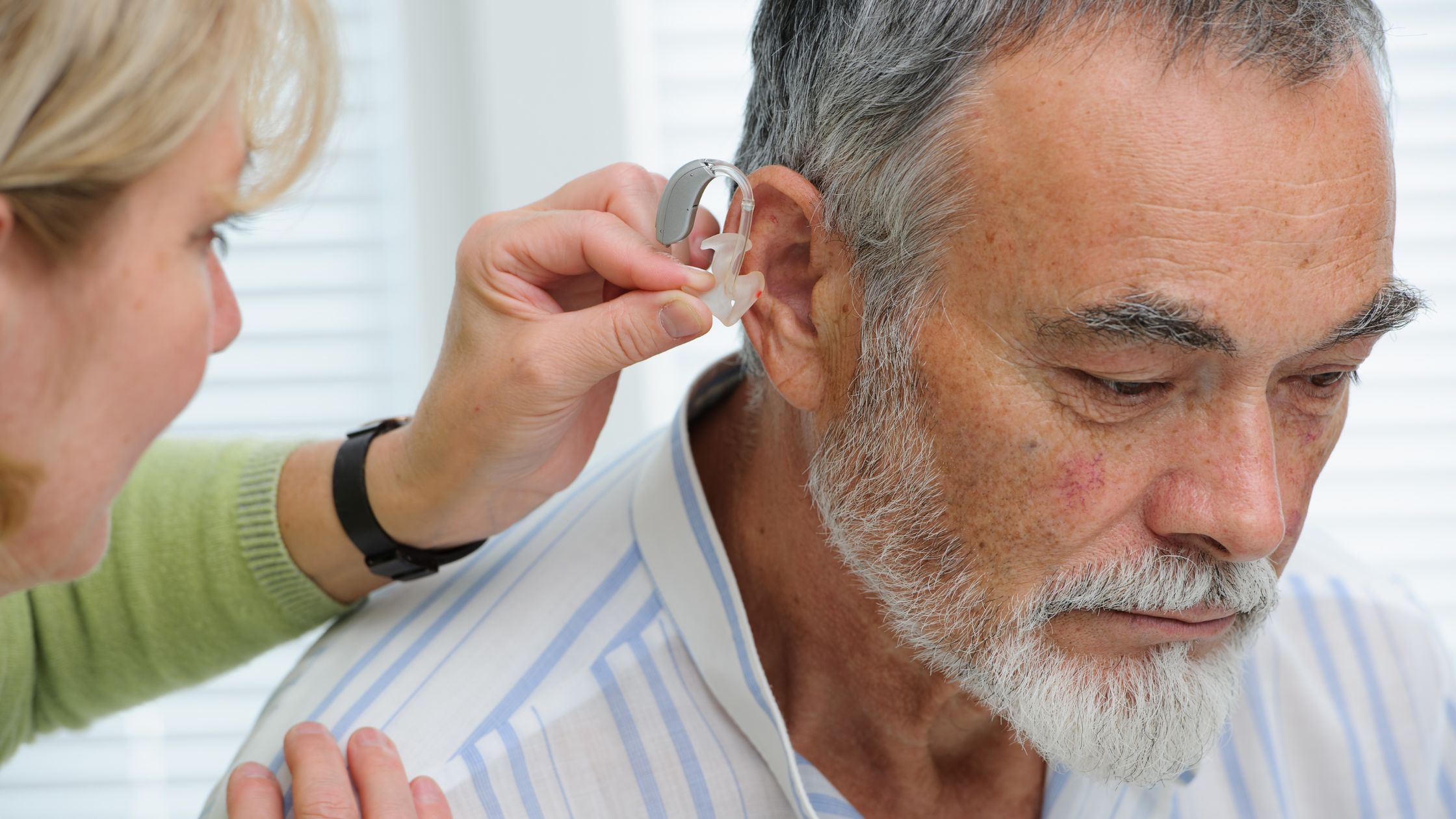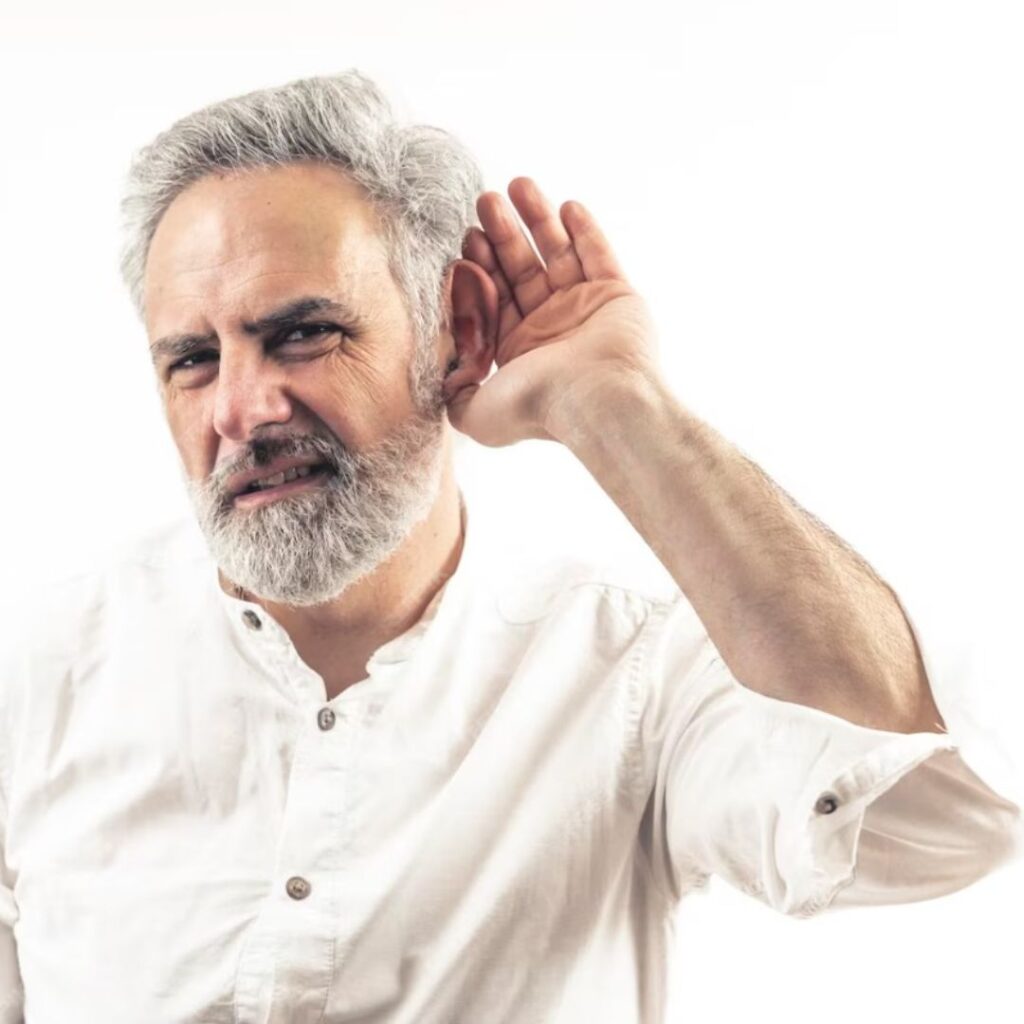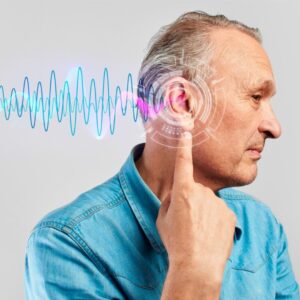

Introduction
A common health problem that impacts millions of people globally is hearing loss. It’s interesting to note that data regularly indicate that hearing loss affects more males than women. Researchers are now devoting more time to figuring out the underlying causes of this gender gap. We look at some of the main causes of men’s higher risk of hearing loss than women in this blog post.

Occupational Noise Exposure
Across the globe, occupational noise exposure is still a major factor in hearing loss among workers, especially in sectors like manufacturing, construction, and agriculture. Workers in these fields frequently have to put up with loud machinery, power tools, and heavy equipment. Long-term exposure to very loud settings without the use of proper hearing protection can harm the inner ear’s fragile structures and cause irreparable hearing loss. Even with improvements in workplace safety laws and the accessibility of hearing protectors, many workers continue to be at danger because they don’t always use them or don’t know enough about the long-term effects of noise exposure.
Recreational Activities
Men and women’s differences in hearing loss are largely caused by their recreational activities. Men are frequently found engaging in loud noise-producing hobbies and pastimes like hunting, shooting sports, riding motorcycles, and attending concerts. Over time, these activities may cause irreversible harm to the sensitive hair cells in the inner ear by exposing the auditory system to excessive sound levels. In the absence of regular use of ear protection such as earmuffs or earplugs, recreational noise exposure continues to be a significant risk factor for hearing loss in men. This emphasises the significance of taking preventative steps to protect hearing during leisure activities.

Biological and Hormonal Factors
The variations in men’s and women’s hearing health are mostly influenced by biological and hormonal variables. Studies indicate that oestrogen, a hormone that is more common in women, might protect the auditory system. It has been discovered that oestrogen may improve blood flow to the inner ear, encourage tissue healing, and lessen oxidative stress—all of which may support the preservation of hearing acuity. On the other hand, male testosterone levels could not offer the same level of protection. This difference in hormones may help explain why, in general, women lose hearing more slowly and with less severity than men do as they age. Comprehending these biological subtleties is essential for formulating focused strategies to maintain hearing health in various demographics.

Healthcare Seeking Behavior
Individual differences in healthcare seeking behaviour can be attributed to a multitude of factors, including culture, socioeconomic background, education, and personal attitudes regarding health and illness. When it comes to seeking healthcare, women are generally more proactive than males. Women are frequently more likely than males to seek medical advice and treatment as soon as possible, even for disorders like hearing loss. Men, on the other hand, might put off getting medical attention until their symptoms worsen or start to seriously interfere with their everyday lives. Everyone’s overall health outcomes can be improved and prospective health difficulties can be mitigated by promoting early intervention and routine health check-ups.
Conclusion
A complicated interaction between biological, recreational, occupational, and healthcare factors explains why hearing loss affects more men than women. Even if workplace safety laws and public knowledge of hearing protection have improved throughout time, continuous initiatives are still required to reduce the dangers of hearing loss in both sexes. Regardless of gender, maintaining one’s hearing can be facilitated by routine hearing tests, using hearing protection in noisy places, and taking a proactive attitude to maintaining one’s hearing.